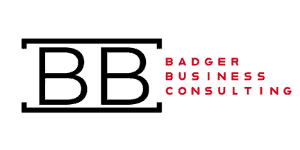Factoring
What is Factoring?
Factoring is defined as the sale of an asset, particularly your current accounts receivable. An institution called a factor buys these accounts for a lump sum and then takes up collection responsibilities. So instead of having to wait for clients to eventually pay you, you can take a lump sum payment and receive a lump sum up front. For instance, you might have an account with a client who owes you $1000. The client will pay in $100 increments each month, so you will not receive full payment for 10 months. Instead of waiting for this slow drip of cash, you can sell the account for upwards of 90 percent of its value. So now you have most of the money without the hassle of collecting. Factoring often costs significantly less than a traditional loan, and the factoring fee is often worth the price to accelerate your cash flow.
Factoring brings in quick funding when you need funds immediately. Most industries have a 90 day extended payment option. This includes supply companies, distributors and equipment lessors. Since your own clients may have a monthly payment plan extended for upwards of a year, you cannot wait to collect. Selling your accounts receivable to a factor keeps you on track to pay back your own dues in a timely manner. This greatly reduces the likelihood of getting buried in fees and fines related to your bills. Also, when an investment opportunity shows itself you can quickly turn your assets into cash to capitalize on potential growth. Securing a loan can take much longer than factoring your accounts for quick cash. Whatever you need cash for, our loan brokering services can get you in touch with the right factor for your business’s needs.
Invoices
Turning your invoices into quick cash gets you paid much faster than waiting for a client to fulfill all of their monthly obligations. And even when you do not have a monthly payment plan with a client, you can still sell the invoice to a factor faster than most clients pay.
Purchase Orders
Purchase orders function much like a shopping cart on an online site. Instead of just a browsing tool, however, they are legally binding and contain a payment obligation. Therefore, you can sell purchase orders to a factor as well.
Contracts
When your clients have good credit, you can factor your contracts with them to quickly bring in cash as needed. Whatever asset you intend to factor, our loan brokers can help you sort through the process
Factoring
Has big advantages
- Factoring is not counted as a debt.
- You can use factoring, even if you have poor or little credit.
- Collections from the client are handled by the factor.
- Most types of A/R can qualify for financing.
FAQs
When Won’t Factoring Work?
How Do Clients Respond?
How much does Factoring Cost?

What Financing Fits You?
